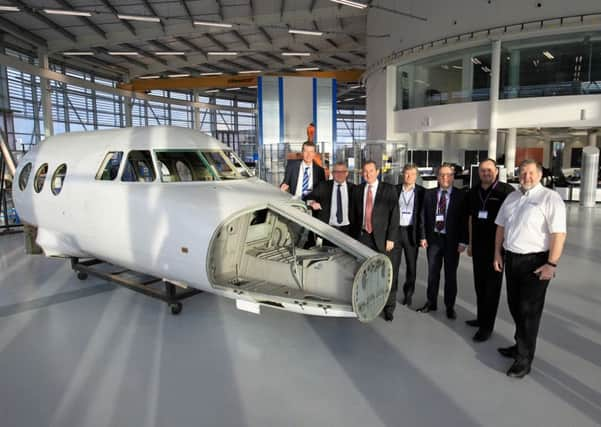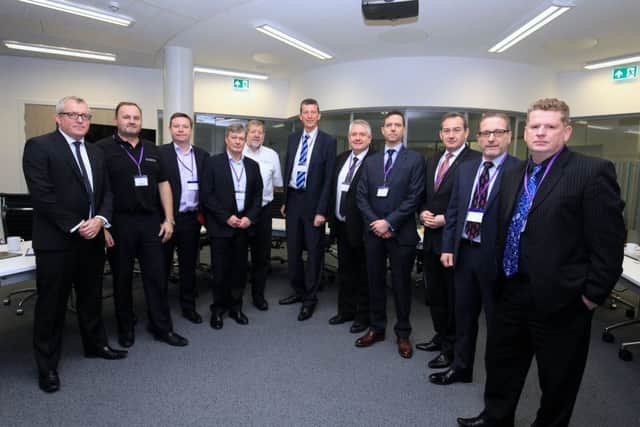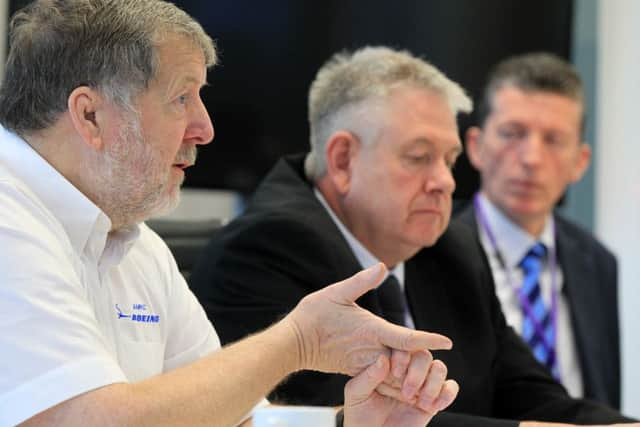DEBATE: Why advanced manufacturing is vital to region


And if Rolls-Royce wins the contract to develop small modular nuclear reactors, it could build three factories here, pumping billions into the economy.
Meanwhile, smaller firms are using advanced manufacturing to help Sheffield outstrip the rest of the country for productivity in the sector.


Advertisement
Hide AdAdvertisement
Hide AdThe positive picture emerged in a round table staged by The Star, in partnership with Barclays.
It was held in the boardroom of Factory 2050, a new £43 million building that forms part of Sheffield University’s Advanced Manufacturing Research Centre, and was attended by chief executives, senior managers, bankers and researchers.
Confidence has recovered after a ‘hiccup’ following the Brexit vote – and possible tariffs are too far away to worry about, the discussion heard. And those that do business in the US have noticed an upturn due to a ‘feelgood’ factor from the Trump presidential election victory.
Stephen Shaw, engineering director at AESSEAL in Rotherham, showed why it is one of the best mechanical seal makers in the world.


Advertisement
Hide AdAdvertisement
Hide AdHe said: “AES is overly invested. We have spent upwards of £4m on machinery last year that we don’t need. We have 20 per cent of extra capacity in our group that we will need in two years’ time.”
The round table heard that years of work to develop the right environment for big OEMs (original equipment manufacturers) could be about to pay off.
The area now boasts research facilities, a strong supply chain, a skilled workforce and deep collaboration between partners including the university, business, the LEP and local authorities.
The AMRC is a cluster of hi-tech buildings on the Sheffield-Rotherham border which carry out research for industrial partners including Boeing, Rolls Royce, Airbus and BAE Systems.


It also includes a 200-strong apprentice training centre.
Advertisement
Hide AdAdvertisement
Hide AdProf Keith Ridgway, AMRC executive dean, said: “Rolls Royce could put three factories in Sheffield if it got the contract to build small modular nuclear reactors that cost £2 billion each. That would be transformational.
“Hinkley Point C is set to cost £26bn but the cost of the money is 40 per cent and the ‘50 per cent British build’ is the concrete. Perhaps Brexit will make us buy British.”
Vince Middleton said: “The biggest thing I have seen since the Brexit vote is a sea-change in the mind of government, which now doesn’t have to buy everything at the lowest possible cost from overseas.


“The MoD is also looking at the tax take and the reduction in welfare costs if the work is done here. It would be a massive change that could have a huge effect on this region.”
Advertisement
Hide AdAdvertisement
Hide AdMatthew Chenery, relationship director at Barclays in Sheffield, looks after 40 manufacturing clients.
He said: “Firms are showing resilience in the face of unprecedented uncertainty. The outlook is more positive than people were expecting and is more positive than in the South.
“Companies do not fear debt, there has been a shift in thinking away from the things they can’t control, they’re getting on with business.”
THOSE ATTENDING:
Prof Keith Ridgway CBE, executive dean, AMRC with Boeing
Matthew Chenery, relationship director, Barclays corporate banking
Vince Middleton OBE, chairman Newburgh Precision
Mark Webber, managing director, Tinsley Bridge Group
Stephen Shaw, group engineering director AESSEAL
Dr Gari Harris, British Steel R&D manager
Advertisement
Hide AdAdvertisement
Hide AdDavid Grey MBE, executive chairman of OSL Group Holdings Ltd
Andy McGuinness, managing director Independent Forgings & Alloys Ltd
Mike Rigby, Barclays UK head of manufacturing transport and logistics
Adrian France, operations manager, Pressure Technologies
David Walsh, business editor, The Star